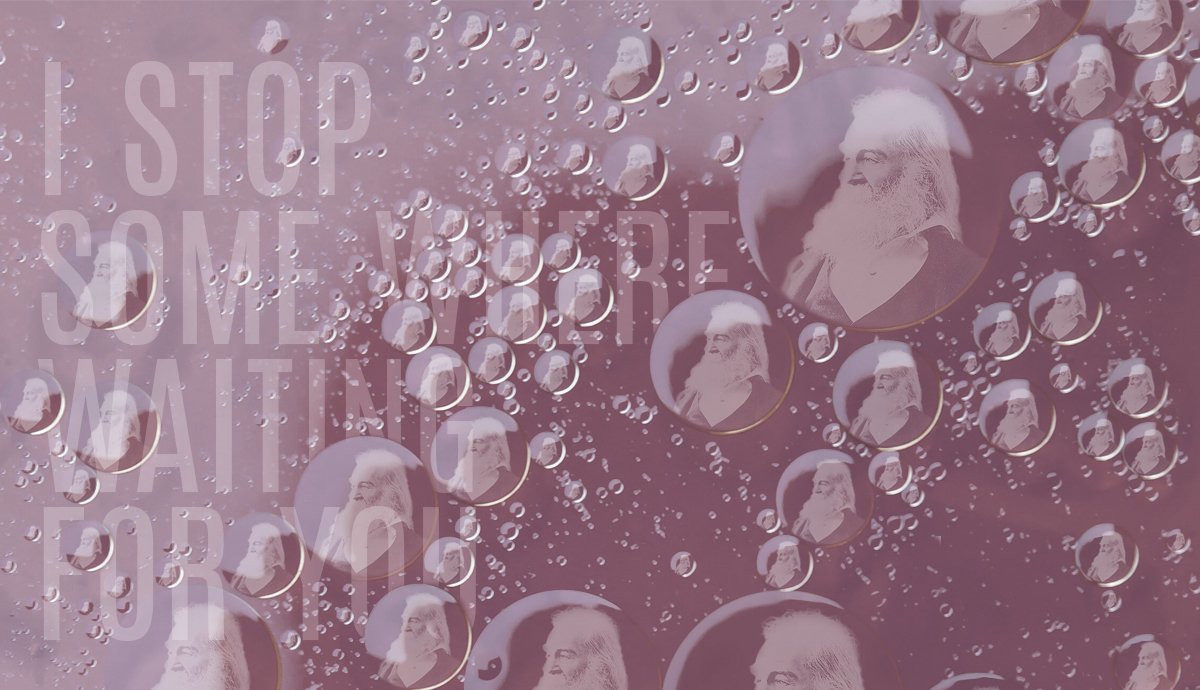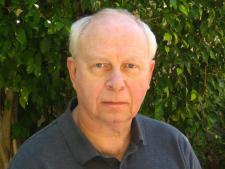Every Atom | No. 140
Introduction to Every Atom by project curator Brian Clements
The first line of Whitman I ever read was the last line of “Song of Myself”—“I stop some where waiting for you.” I was in college, I had written poems since I was fifteen, the Whitman poem was required reading in a course, and I was very aggressive, persistent, and cynical, meanwhile constantly connecting things I encountered. I was reading about Einstein on gravity, space, and time, and a teacher was pushing Howard Nemerov on me. I had in mind to counter the teacher and Nemerov with Whitman who I had never read but had heard about. But I couldn’t read “Song of Myself” from the beginning. When I tried I immediately forgot. So I started at the end, an inventive, persistent, and perverse act.
The last line “I stop some where waiting for you” seemed Einsteinian to me—not boxed square but curved or circular, never located, requiring unlimited time (as the poem does), and both returning and continually going away. All the last five qualities seemed to me to apply to both the speaker/character and the “you” or the reader, me (or you too, another reader). At this point in my life I was not especially balanced or in a state of grace, far from it, and now suddenly I felt better. At peace would be putting it too strongly, but toward there. I tried the whole poem from the beginning once more and lo and behold the third line says “. . . every atom belonging to me as good belongs to you.”
Despite the nearly last line of Part 1, “Nature without check with original energy” [first added to the text in the 1867 edition], despite it, despite the Einsteinian tendencies we begin with, the poem becomes very located and specific wherever it wanders and returns to as it creates the central nature of the speaker/character. That nature is to love stuff. That nature is to see everything as equal and blessed. “Song of Myself” is a catalogue of daily objects and occurrences, mixed with psychic streams—perfume, towels, a clear soul, sex, the handkerchief of the Lord, shod horses, runaway slaves, biscuits, a perpetual journey, letters from God dropped in the street, and onward to many others.
Now I had a magical source to turn to for nearly everything. Now I had an alternative to the person I was, without giving up the person I was. Now I had two ways of being, perhaps polar—my existing self and my possible self. Now it was possible to write poems from a mixture of anything, which I may have done since, or only tried to do.
Frankly, the poem is very far from me now, but its effect is present and has been for decades.
Recommended
Nor’easter
Post-Op Appointment With My Father
Cedar Valley Youth Poet Laureate | Fall 2024 Workshop







